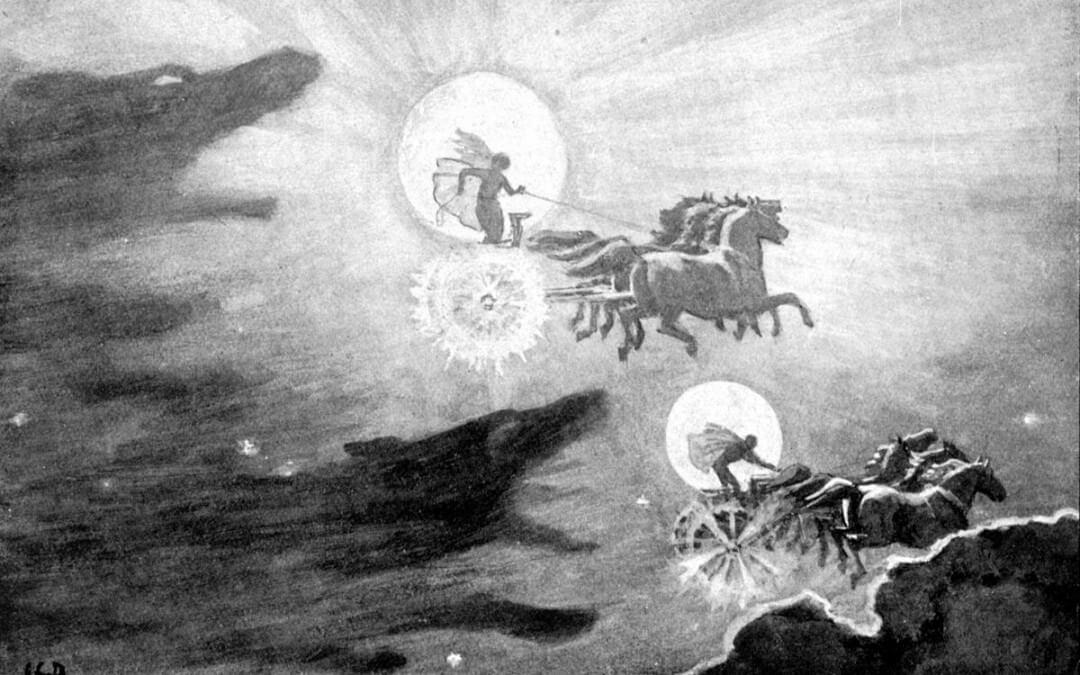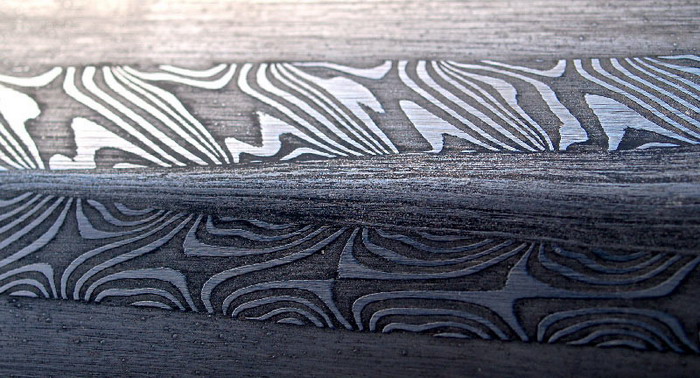
by Zabaan | May 30, 2015 | Classical languages, Norse Mythology, Old Norse
The following passage is translated from the Prose Edda, an Old Icelandic anthology on Norse Myth written around 1220 by Snorri Struluson as a question and answer game between Odin, king of the gods, here called Hárr, lit. the high one, and Gangleri,...
by Zabaan | May 29, 2015 | Classical languages, Norse Mythology, Old Norse
In Norse mythology the earth is surrounded by an ocean encircled by the giant snake Jörmungandr, also called Miðgarðsormr (ð = th of modern English), literally the snake of the middle dwelling, i.e. earth. One day, Thor, the god of thunder, went fishing for it –...
by Zabaan | May 28, 2015 | Ancient Greek, Classical languages, Literature, Sanskrit
Both in the Vedic hymns and in the Homeric poems dawn is imagined as radiant young woman. The Vedic hymns describe her as she who, everyday anew, suffuses the world with vital energy and rouses its creatures form the inertia spread over the world by night. यूयं हि...
by Zabaan | May 28, 2015 | Classical languages, Old English
Both words in the phrase kith and kin are of Old English origin. Kith is from cȳð (ð is pronounced as a th in modern English), which means known and also crops up in an entirely different spelling the the word uncouth: unknown, unfamiliar, wild,...

by Zabaan | May 27, 2015 | Ancient Greek, Classical languages, Script
Νέστορος [εἰμὶ] εὔποτ[ον] ποτήριο[ν]· ὃς δ’ ἂν τοῦδε π[ίησι] ποτηρί[ου] αὐτίκα κῆνον ἵμερ[ος αἱρ]ήσει καλλιστ[εφάν]ου Ἀφροδίτης. “I am Nestor’s cup, good to drink from. Who happens to drink of this vessel, forthwith the desire of fair-crowned...
by Zabaan | May 27, 2015 | Etymology
Copain in French means mate. The word consists of co-, meaning together (as in coworker), and pain, the French word for bread, making a mate a person with whom one shares a meal, one’s daily bread. The word company has the same...
by Zabaan | May 26, 2015 | Ancient Greek, Classical languages, Etymology
The word amazon is of Greek origin and is not a really an exotic tribal name, but pure and simply a descriptive term. It consists of the privative prefix a- (as in a-theist) and the noun mazos meaning breast. It alludes to the popular belief that Amazons cut of their...
by Zabaan | May 26, 2015 | Classical languages, Etymology, Old Norse
Parts of England were occupied by Old Norse speaking vikings between 860 and 950 AD. In this time many Old Norse words were borrowed into English, sometimes these words are surprisingly common in today’s English. Sky, anger and window, for example, are all of...

by Zabaan | May 25, 2015 | Literature
Ancient Germanic smiths used a technique known as pattern welding, by which a blade was forged from several rods twisted and hammered together when in fusion. This process not only makes the resulting blade stronger, but it also gives it a very distinctive patterned...
by Zabaan | Dec 5, 2014 | Learning and Teaching
Every second language learner starts learning a language with an aim. Some learn out of interest, some do out of compulsion, but no matter what one does, what their purpose is, the one thing they definitely do is change their brain in a certain manner. For years,...




